
Discover more from "Listening to the Essence of Things": musings on life
(Written on 2nd October)
Today begins the two days of Rosh Hashanah, the Jewish new year. The day recalls God’s creation of humankind when the universe was awakened into being by the divine breath.
It’s hard to reconcile such a celebration with images of missiles raining down on Israel last night, the dread of what Israel will do in retaliation, and the continuing escalation of violence in a region where there has already been too much innocent suffering, too much destruction and sorrow.
(From the Singulart website): Tashlich is a special prayer that Jews perform on Rosh Hashanah, the Jewish New Year, in front of a water source. They symbolically cast their sins into the water, hoping to start the new year with a clean slate, free from guilt and wrongdoing. The painting depicts Jewish men and women praying the Tashlich prayer by the river bank.
Sometimes it’s impossible to decipher meaning or purpose in the violence that seems to have our world in its grip. Any attempt to do so can feel like further violation of the innocents who suffer most, especially the children.
I’ve been reflecting on these questions in light of Elie Wiesel’s Nobel Peace Prize acceptance speech in 1986. It was a time of different wars, different reasons for lamentation, but always with the deep unbroken chord of remembrance that resonates through all modern reflections on life, meaning, civilization, and God.
Wiesel talks of his own younger self, a man who had lost everything but who found a few friends who shared his belief
that the memory of evil will serve as a shield against evil; that the memory of death will serve as a shield against death.
This he must believe in order to go on. For he has just returned from a universe where God, betrayed by His creatures, covered His face in order not to see. Mankind, jewel of his creation, had succeeded in building an inverted Tower of Babel, reaching not toward heaven but toward an anti-heaven, there to create a parallel society, a new “creation” with its own princes and gods, laws and principles, jailers and prisoners. A world where the past no longer counted—no longer meant anything.
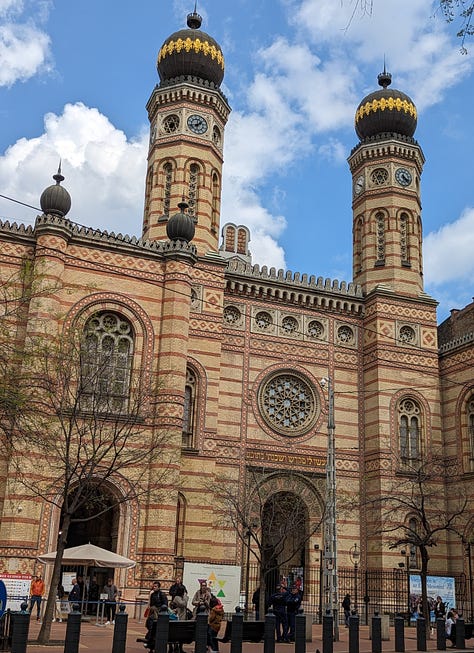
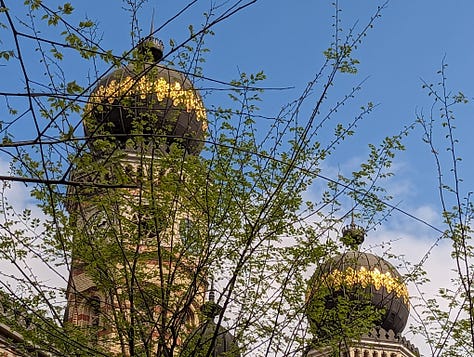
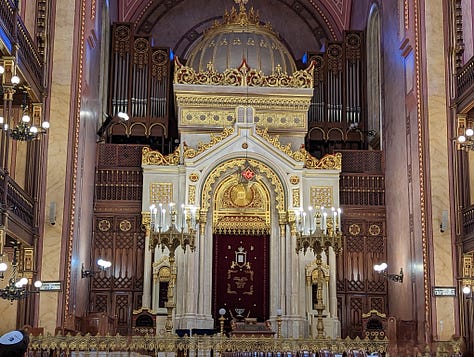
Sometimes I wonder if God regrets creating us. If the divine will must yield to the creative urge, why not create a beautiful world without humans to shatter its harmonies and corrupt its goodness, or at least, withhold from the human species the divine image that gives us more freedom than we know how to use, and more destructive power than we can possibly harness?
Ivan Karamazov’s despairing challenge to religious faith in Dostoyevsky’s The Brother Karamazov is rightly famous. Any believer who does not allow his words some space in their reflections is perhaps not facing up to the issues. Here is an extract from Ivan’s speech to Alyosha, but I encourage you to read the book.
I want to see with my own eyes the hind lie down with the lion and the victim rise up and embrace his murderer. I want to be there when everyone suddenly understands what it has all been for. All the religions of the world are built on this longing, and I am a believer. But then there are the children, and what am I to do about them? That’s a question I can’t answer. … It’s not worth the tears of that one tortured child who beat itself on the breast with its little fist and prayed in its stinking outhouse, with its unexpiated tears to “dear, kind God!” It’s not worth it, because those tears are unatoned for. They must be atoned for, or there can be no harmony. But how? How are you going to atone for them? Is it possible? By their being avenged? But what do I care for avenging them? What do I care for a hell for oppressors? What good can hell do, since those children have already been tortured? And what becomes of harmony, if there is hell? I want to forgive. I want to embrace. I don’t want more suffering. And if the sufferings of children go to swell the sum of sufferings which was necessary to pay for truth, then I protest that the truth is not worth such a price. … I don’t want harmony. From love for humanity I don’t want it. I would rather be left with the unavenged suffering. I would rather remain with my unavenged suffering and unsatisfied indignation, even if I were wrong. Besides, too high a price is asked for harmony; it’s beyond our means to pay so much to enter on it. And so I hasten to give back my entrance ticket, and if I am an honest man I am bound to give it back as soon as possible. And that I am doing. It’s not God that I don’t accept, Alyosha, only I most respectfully return him the ticket.
Alyosha’s response to Ivan unfolds slowly as he overcomes his religious demons to discover a depth to his own faith. He doesn’t offer grand solutions or theological explanations. He becomes an attentive presence amidst the sufferings that surround him, and he does what he can to mend the world through small acts of kindness. This is what is meant by the Hebrew term “tikkun olam”, which Judaism interprets as the task of restoring the harmonies of creation through seeking to repair the world’s brokenness in our daily lives.
This can sound idealistic and hopelessly ineffectual in the face of global politics. Yet every human heart is a microcosm of the world in all its muddle and mess, in all its sorrows and struggles, hopes and fears, love and hatred, joy and tenderness. I too can be gripped by the urge to harm those who harm me or my loved ones. I too can crave justice more in terms of vengeance and violence than in terms of restoration and reconciliation. I too become greedily protective of my possessions, my reputation, my time, my home, my beliefs, and my place in the world, when these are threatened. I too can gloss all these destructive urges with language that not only justifies them but makes them sound noble and brave. But the more I act on these impulses and the fears that drive them, the more I become part of the problem, feeding the voracious monster, the golem, that prowls the world seeking a place to grow in every human heart. Violence is more than the sum of its parts, but I play my part when I offer it a breeding place in my soul.
But the same is true of hope. St Paul tells us that faith, hope and love endure, and the greatest of these is love. Sometimes, love is too much to ask of us, and we should not use such language cheaply lest we debase it and deny its true cost. It’s easy for me to speak of love for our enemies when, in truth, I have no enemies deserving of my hatred. Nobody has ever bombed my home and killed or injured my loved ones. Nobody has ever violently attacked me for my race or religion, for being the wrong person in the wrong place at the wrong time, and such attacks as I have suffered because of my sex have not been damaging enough to cause me to hate. They are only as much as every woman learns to absorb in order to survive. But all this could change in an instant, so I do not say we should love our enemies. I have no right to demand that of those who have been hurt beyond anything I have been asked to bear.
But I can speak of hope, and perhaps hope is where love might find a place to grow. Hope is our only bulwark against despair, and it is different from optimism. Optimism has its place, but it involves a refusal of and a distraction from the present by imagining a better future. Hope inhabits the present in all its inescapable claims upon us, but it never loses sight of the future. Wiesel writes:
Just as man cannot live without dreams, he cannot live without hope. If dreams reflect the past, hope summons the future. Does this mean that our future can be built on a rejection of the past? Surely such a choice is not necessary. The two are not incompatible. The opposite of the past is not the future but the absence of future; the opposite of the future is not the past but the absence of past. The loss of one is equivalent to the sacrifice of the other.
The difference between optimism and hope is similar to that between fantasy and imagination. Fantasy is an escapist illusion, but imagination draws its strength from memories, dreams, and possibilities. Wiesel writes of the paradox of needing to forget the past in order to survive, and having a duty to remember as a responsibility to the future. He writes of those survivors who believed that telling their stories, remembering their suffering, would transform the world:
After the war we reassured ourselves that it would be enough to relate a single night in Treblinka, to tell of the cruelty, the senselessness of murder, and the outrage born of indifference: it would be enough to find the right word and the propitious moment to say it, to shake humanity out of its indifference and keep the torturer from torturing ever again. We thought it would be enough to read the world a poem written by a child in the Theresienstadt ghetto to ensure that no child anywhere would ever again have to endure hunger or fear. It would be enough to describe a death-camp “Selection”, to prevent the human right to dignity from ever being violated again.
We thought it would be enough to tell of the tidal wave of hatred which broke over the Jewish people for men everywhere to decide once and for all to put an end to hatred of anyone who is “different”—whether black or white, Jew or Arab, Christian or Moslem—anyone whose orientation differs politically, philosophically, sexually. A naive undertaking? Of course. But not without a certain logic.
Language is inadequate to such a monumental task of bearing witness to the unspeakable and the unthinkable, but the survivors tried nevertheless to find words that might carry enough of the burden of meaning to tell their stories:
Each one of us felt compelled to record every story, every encounter. Each one of us felt compelled to bear witness. Such were the wishes of the dying, the testament of the dead. Since the so-called civilized world had no use for their lives, then let it be inhabited by their deaths.
“Have we failed?”, Wiesel asked, listing the atrocities and horrors of the 1980s. That question bears down upon us with a great and tragic burden of failure today, but still we must heal the world in whatever ways we can:
There may be times when we are powerless to prevent injustice, but there must never be a time when we fail to protest. The Talmud tells us that by saving a single human being, man can save the world. We may be powerless to open all the jails and free all the prisoners, but by declaring our solidarity with one prisoner, we indict all jailers. None of us is in a position to eliminate war, but it is our obligation to denounce it and expose it in all its hideousness. War leaves no victors, only victims.
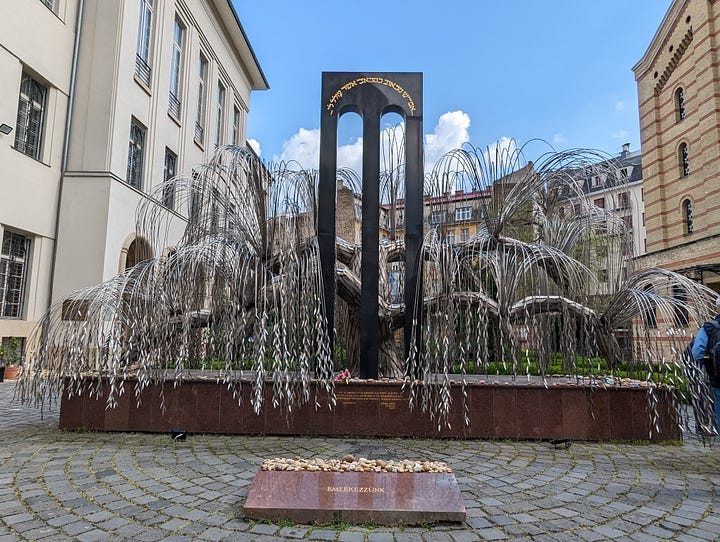
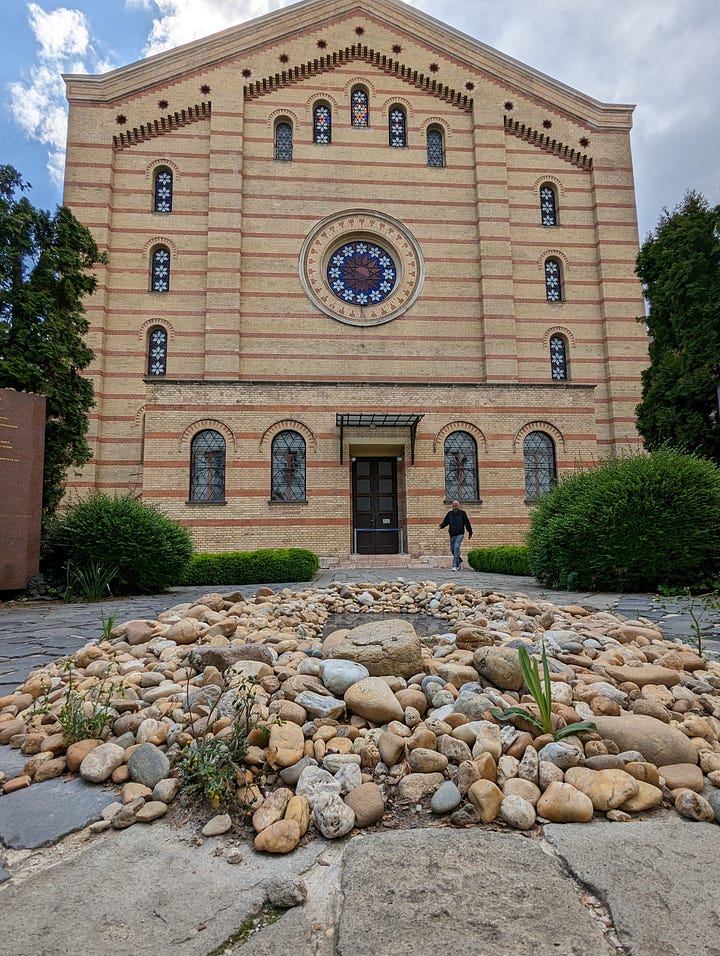
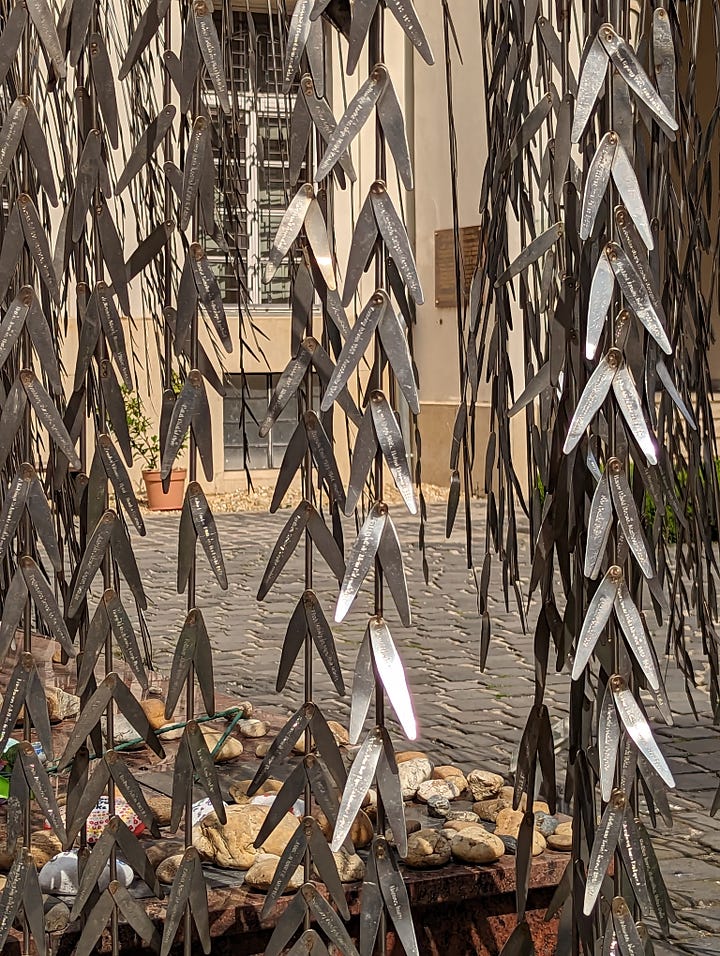
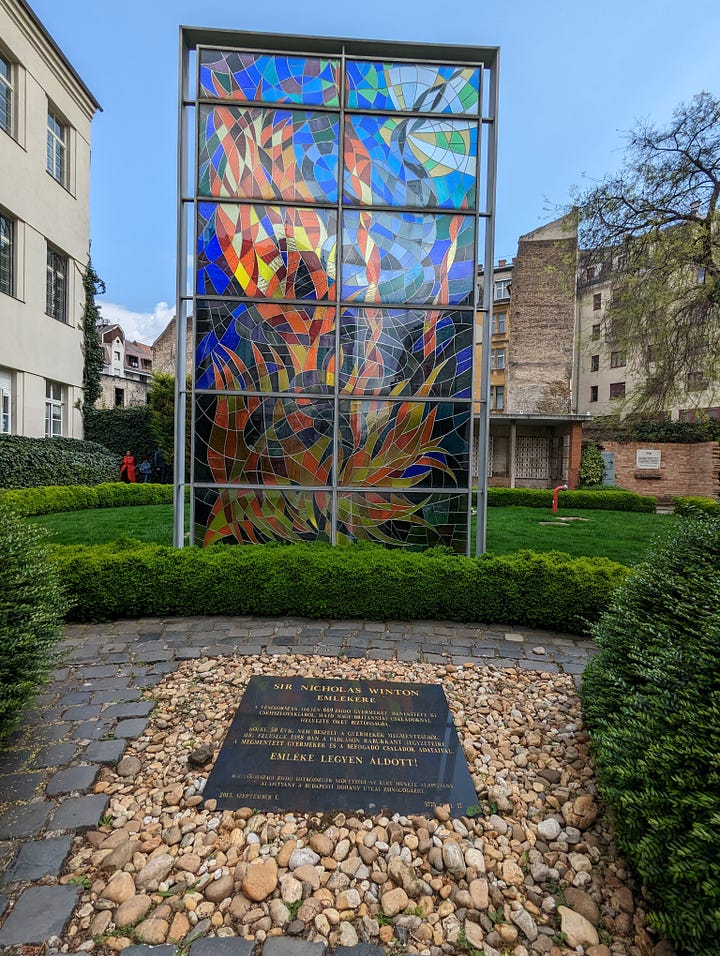
Watching the missiles raining down on Israel, seeing the grieving parents, wounded and orphaned children and shattered buildings of Gaza, listening to those Israelis whose loved ones were murdered or taken hostage last October, dreading the next bloody and futile assault wherever and whenever it comes, I thought of the vast uncontainable sorrow that conflicts such as these feed upon, for they are motivated not by evil but by fear, shame and vulnerability. The West’s support for Israel is driven by a sense of guilt in which “never again” risks mutating into “anything goes” in the futile attempt to expunge an ineradicable past, even as anti-Semitism once again stalks the streets of our cities. The displaced and traumatised Palestinian people continue to pay the price for the West’s imperial conquests and moral failures, and Muslims become targets of the racism and fear that fester beneath secular modernity’s veneer of rationality and science. Every night on the television news, Teflon-coated talking heads spout their theories and talk about distant wars and missiles with the spice of adrenalin in their voices.
Surely it is time to recognise that the modern world, western in origins but global in influence, has collapsed beyond redemption, for the very foundations of its values, relationships and beliefs have been shattered and it is not possible to rebuild on the ruins. Memory must now serve the future not by repetition, but by transformation.
All those doctors of law or medicine or theology, all those lovers of art and poetry, of Bach and Goethe, who coldly, deliberately ordered the massacres and participated in them. What did their metamorphosis signify? Could anything explain their loss of ethical, cultural and religious memory? How could we ever understand the passivity of the onlookers and —yes—the silence of the Allies? And question of questions: Where was God in all this? It seemed as impossible to conceive of Auschwitz with God as to conceive of Auschwitz without God. Therefore, everything had to be reassessed because everything had changed. With one stroke, mankind’s achievements seemed to have been erased. Was Auschwitz a consequence or an aberration of “civilization” ? All we know is that Auschwitz called that civilization into question as it called into question everything that had preceded Auschwitz. Scientific abstraction, social and economic contention, nationalism, xenophobia, religious fanaticism, racism, mass hysteria. All found their ultimate expression in Auschwitz. (Elie Wiesel)
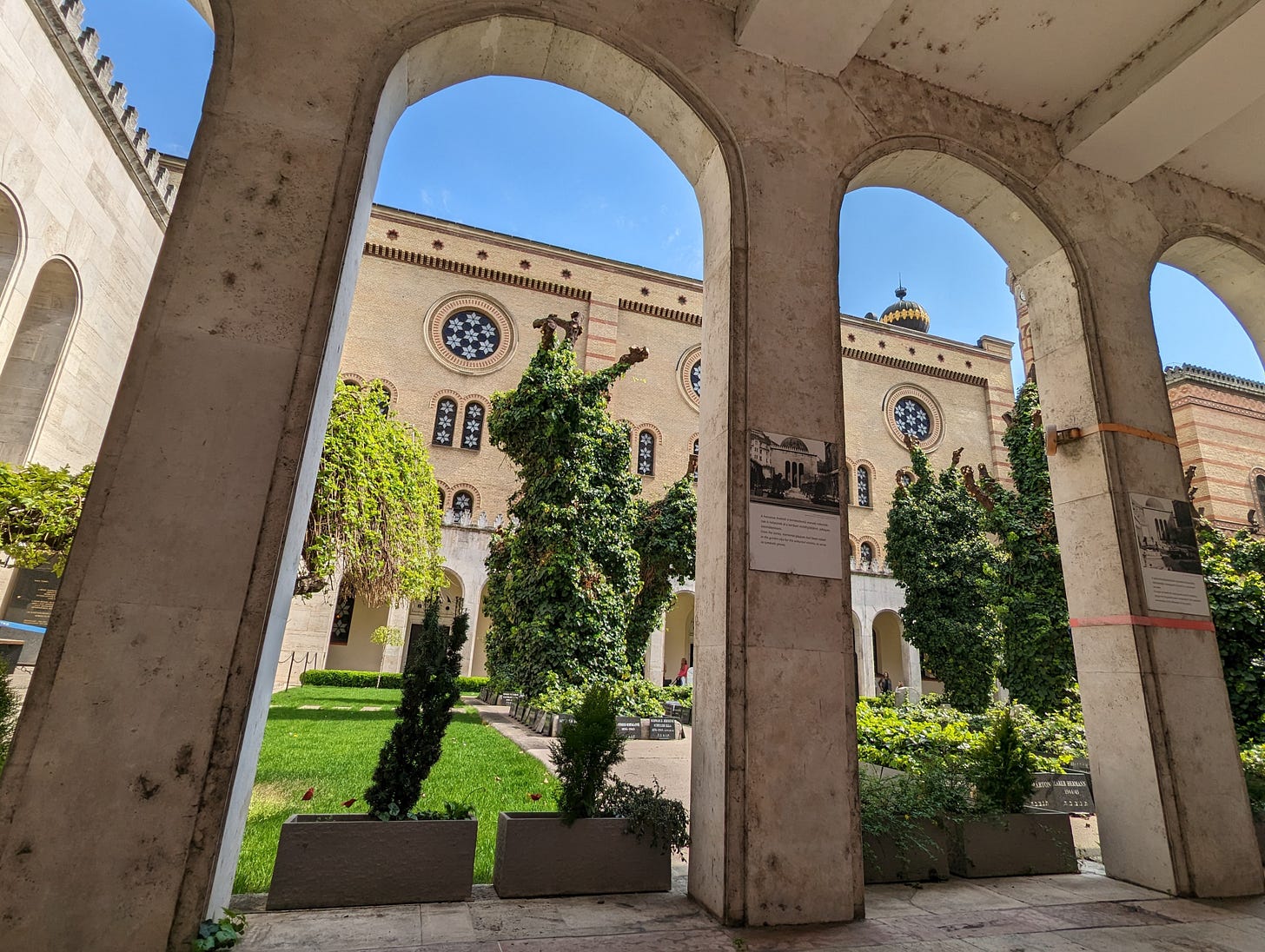
This morning, I reflected on all this as I watched the sun rising behind the ruins of Cambuskenneth Abbey, which I can see through the lounge window. It was a beautiful morning, with shimmering green turning to gold against a gentle sky.
I thought of histories and tyrants, of wars and persecutions, of all the memories that shape the future of the human story. That ancient religious edifice has been home to prayers and yearnings for God, so that sometimes I imagine the ghostly chants of the medieval monks drifting in misty whispers across the river. It was also where Robert the Bruce held his first Parliament after the Battle of Bannockburn—a victory that was followed by a vicious purge of his enemies. Sometimes it’s hard to hear the murmuring heartbeat of faith within the lives of ordinary people caught up time and time again against their will in the tyrannical politico-religious collusions and collisions of history.
Here is what Wiesel says about Rosh Hashanah:
New Year’s Day, Rosh Hashana, is also called Yom Hazikaron, the day of memory. On that day, the day of universal judgment, man appeals to God to remember: our salvation depends on it. If God wishes to remember our suffering, all will be well; if He refuses, all will be lost. Thus, the rejection of memory becomes a divine curse, one that would doom us to repeat past disasters, past wars.
I send greetings for Rosh Hashanah to those many Jewish friends who have enriched my life. I hope that by all our small acts of memory and hope we might join hands across the abyss of war, hatred and fear, to repair the threadbare fabric of the world.
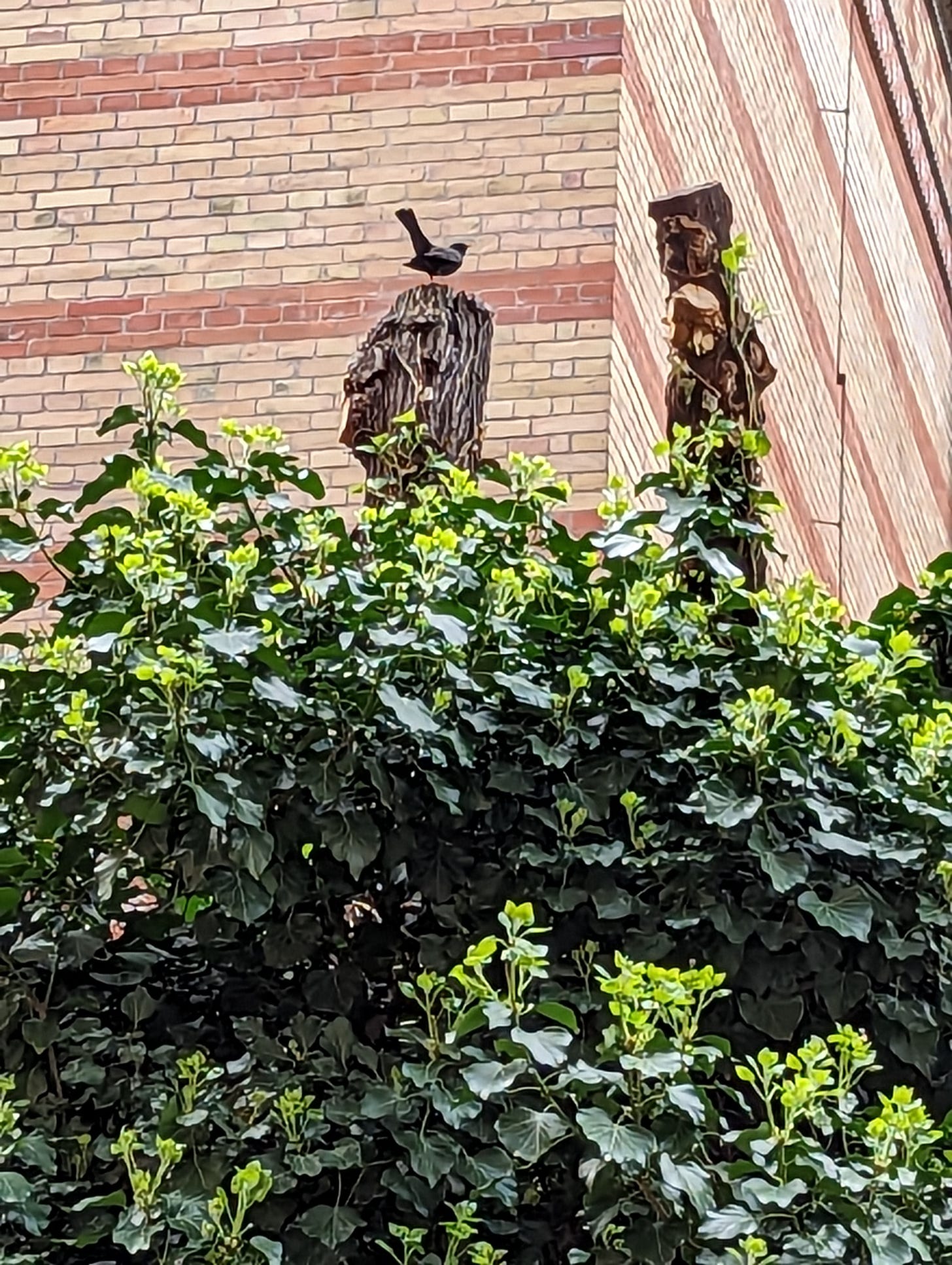
“Hope” is the thing with feathers—
That perches in the soul—
And sings the tune without the words—
And never stops—at all—
And sweetest—in the Gale—is heard—
And sore must be the storm—
That could abash the little Bird
That kept so many warm—
I’ve heard it in the chillest land—
And on the strangest Sea—
Yet—never—in Extremity,
It asked a crumb—of me. (Emily Dickinson)





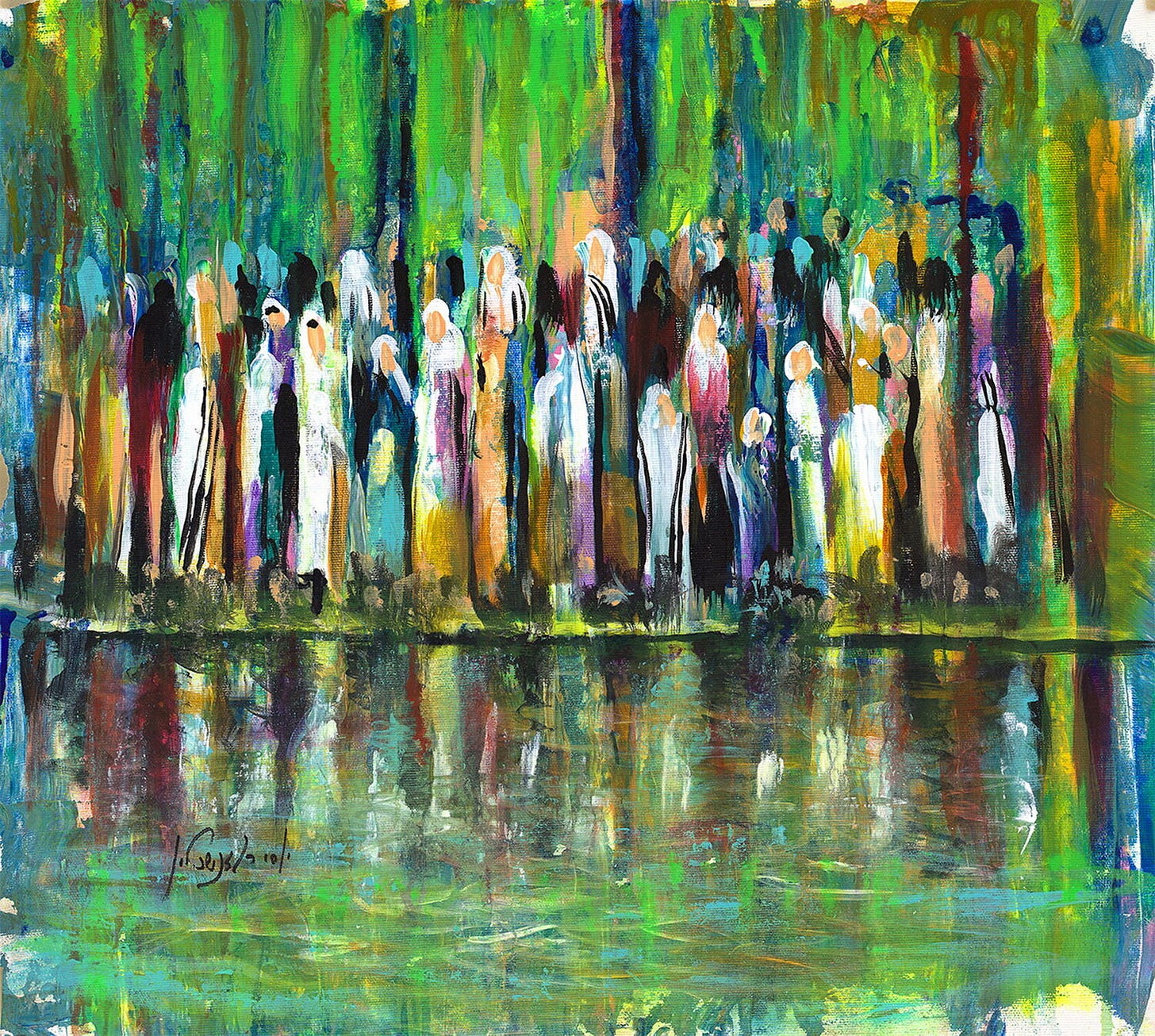
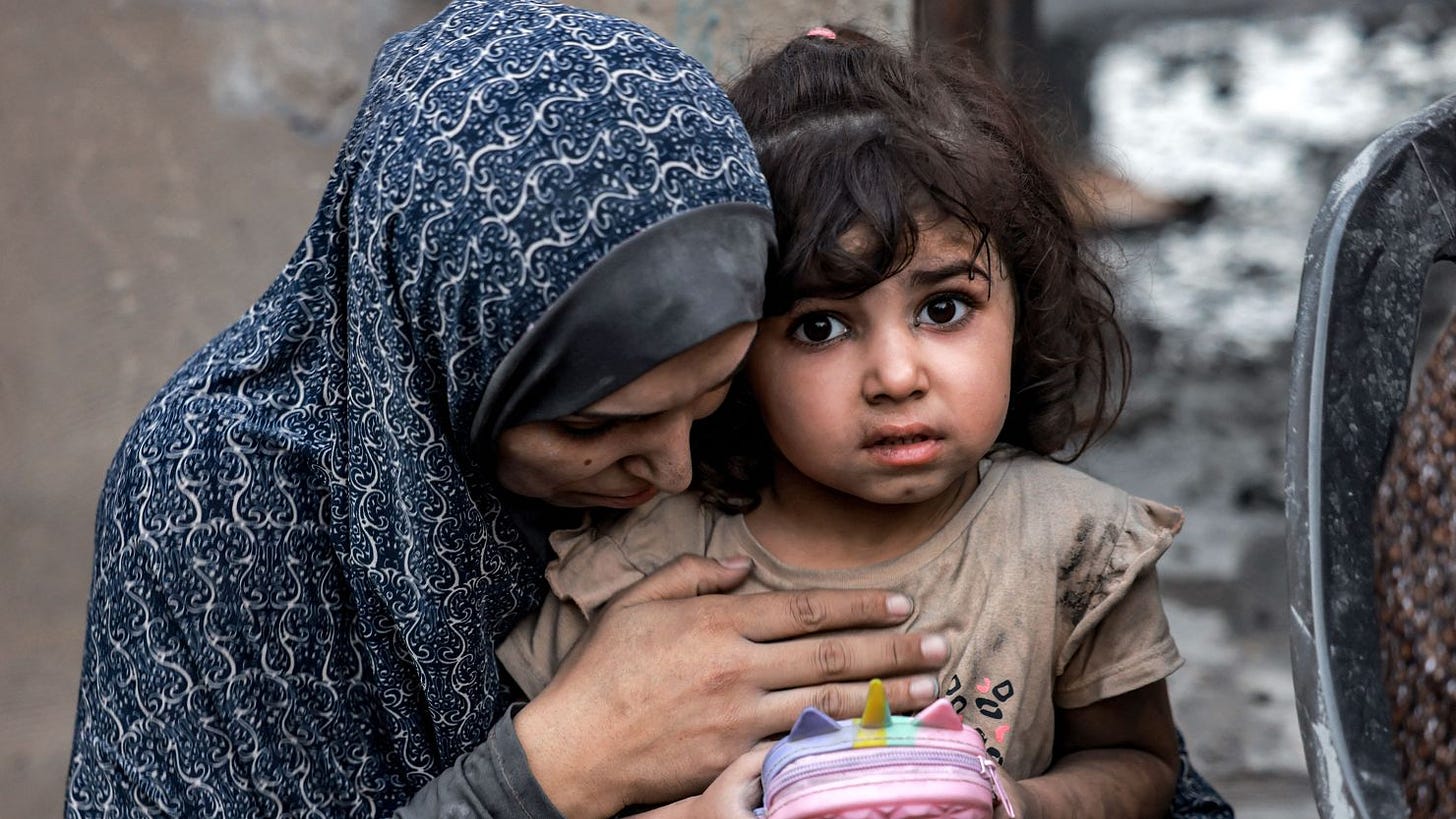
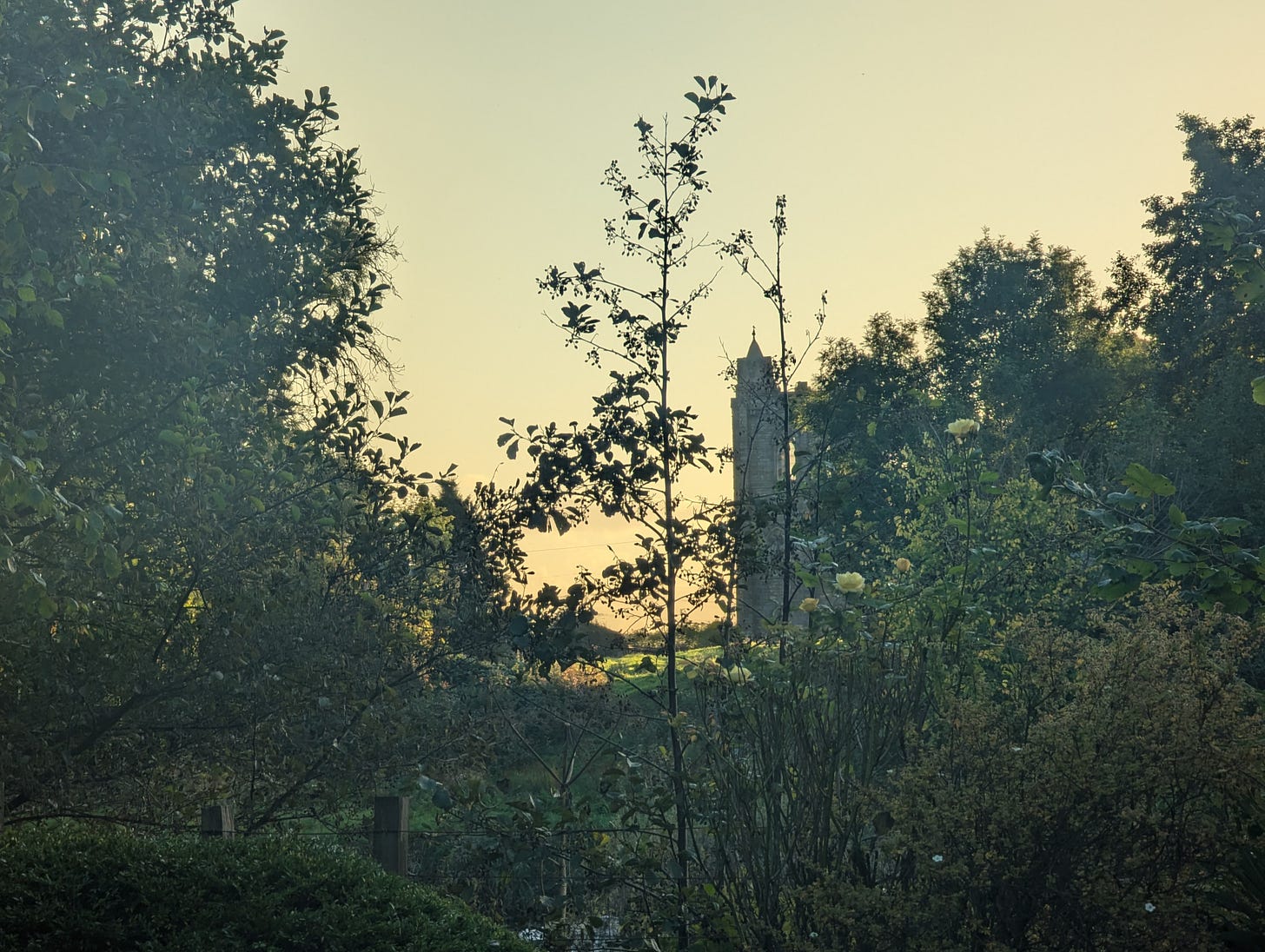








Thank you for this moving piece. It moved me to find out more about Elie Wiesel, and his son Elisha. I am puzzled that they both support the Israeli settlement of Palestinian territories, which I understand is regarded as illegal. Also, I am puzzled that although Elisha does agree with the aim of a two state solution, but he has not himself sought to enter into dialogue with Palestinians.